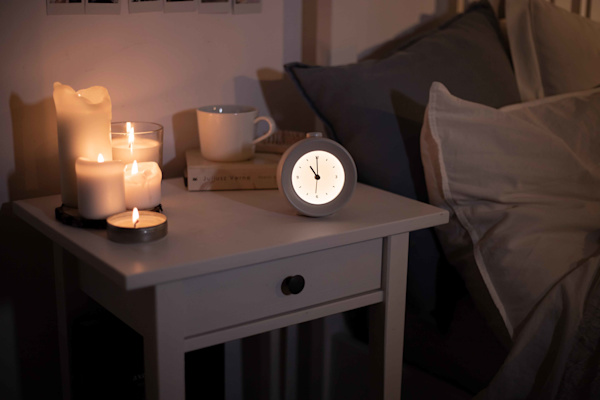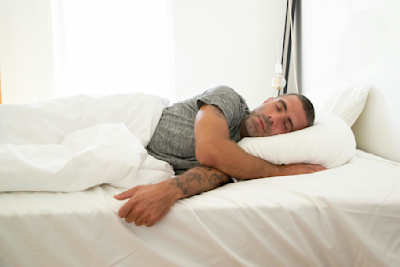
How Light Affects Your Sleep
Light & your Sleep Patterns
Light plays a crucial role in regulating your sleep-wake cycle, also known as the circadian rhythm. The circadian rhythm is an internal clock that tells your body when it's time to sleep and when it's time to be awake. This internal clock is influenced by various factors, including light exposure.
Mudita Harmony2
The Power of Light
Exposure to bright light during the day can improve sleep. This is because sunlight, especially in the morning, helps to regulate your circadian clock for the day, signaling your brain to wake up. Sunlight contains blue light, which is especially effective at resetting the circadian clock. When your brain is exposed to bright light in the morning, it sends a signal to stop producing the sleep hormone melatonin and to start producing the hormone cortisol, which helps you feel alert and awake.
On the other hand, the disappearance of light in the evening tells the brain that it's time to wind down. As the sun sets and the evening approaches, your brain begins to produce more melatonin, which helps you feel sleepy. This is why it's important to avoid bright screens, such as those on TVs, laptops, and phones, before bedtime. The blue light emitted by these screens can interfere with the production of melatonin and make it harder to fall asleep.
Quality Matters
In addition to regulating the sleep-wake cycle, light can also affect the quality of sleep. For example, bright light exposure during the day can improve sleep quality by increasing the length of time you spend in deep sleep, also known as slow-wave sleep. Deep sleep is important for physical and mental restoration, and it's during this stage of sleep that your body does most of its repair and recovery work.
However, exposure to bright light at night has the potential to disrupt sleep quality. For example, if you sleep with the lights on or if you use a device with a bright screen just before bed, you may find it harder to fall asleep and stay asleep. This is because bright light can suppress the production of melatonin and make it harder to fall into a deep sleep.
The best way to get a good night's sleep is to create an environment which supports your natural circadian rhythm. Avoid bright light at night and expose yourself to sunlight during the day in order to produce healthy melatonin levels. You should also keep your bedroom dark and cool if you can.
One key way to ensure you get good, quality rest is to stop using your smartphone as an alarm clock. Try a traditional alarm clock, like Mudita Bell or Mudita Harmony, instead. This will ensure you don't get exposed to bright light in the middle of the night, which can also affect your circadian rhythm.
Make light right for sleep
Overall, it's important to get enough bright light exposure during the day to help regulate your sleep-wake cycle and improve sleep quality. However, it's also important to limit bright light exposure at night, especially in the hours leading up to bedtime, to ensure that you get a good night's sleep. So, it is always a good idea to have a consistent sleep schedule, go to bed and wake up at the same time every day, and create a relaxing bedtime routine to help you wind down and fall asleep more easily.
Looking for more info about how to sleep better? Check out our Sleep Better resource page which covers all the important factors that impact our quality of sleep. Also, please take a look at similar articles featured on our blog and learn more about proven tips for better health and overall well-being.
You might also consider joining our FORUM Community where we discuss ideas and exchange information about all things connected to wellness and digital well-being.
Related stories

The Best Analog Alarm Clock Gift for Dads Who Need More Sleep
Give your dad the gift of rest with Mudita Bell , a minimalist analog alarm clock that helps him wake up calmly, without screens, no stress, just peace.

How a Consistent Sleep Schedule Contributes to Longevity?
A consistent sleep schedule boosts longevity, supports heart health, and enhances brain function. Learn how better sleep can lead to a longer, healthier life.

How Smartphone Photography is Changing Your Memory
Is smartphone photography helping you remember or making you forget? Learn how taking too many pix affects memory & how mindful photography keeps you present.
If you'd like to receive the best stories from our blog, keep up to date with our progress and get notified about our product releases and special discounts.